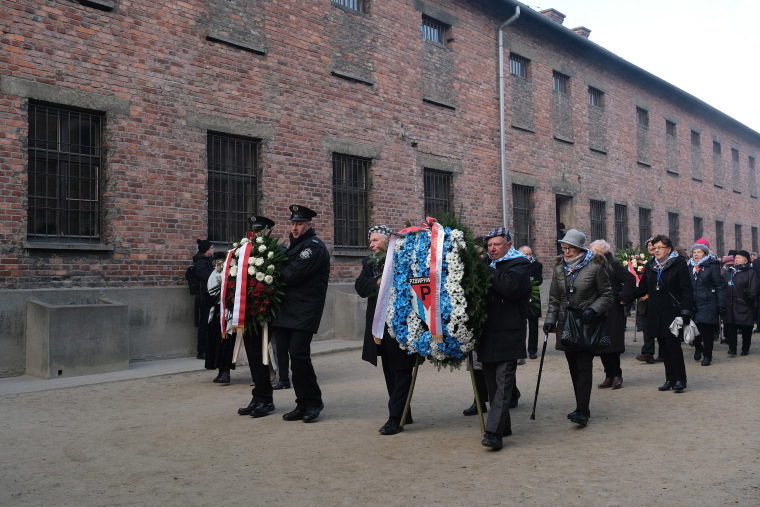OSWIECIM, Poland — When more than 200 survivors of the Auschwitz-Birkenau death camp gather there on Monday to mark 75 years since its liberation, many will do so for the last time.
Elderly survivors from the United States, Israel, Australia, South America, Russia, Slovenia and elsewhere were among presidents, prime ministers and royalty from across the globe at the ceremony in southern Poland, which was under Nazi occupation during World War II.
The event recalled the moment Auschwitz was liberated by the Soviet army on Jan. 27, 1945.
Polish President Andrzej Duda and the head of the World Jewish Congress, Ronald Lauder were, were both scheduled to lead a commemoration for the more than one million people murdered at Auschwitz, the vast majority of whom were Jewish.

"It’s been three generations since that day, the 27th of January 1945, when a few thousand prisoners, victims of cruelty, exhausted by slave-work, hunger and diseases, lived to see liberation by the soldiers of the Red Army," Duda said during his address.
Last week, world leaders gathered in Jerusalem for a separate event to commemorate the Holocaust. Poland's Duda boycotted that event over a disagreement with Russia over Poland's role in triggering World War II.
“This is about survivors. It’s not about politics,” Lauder said Sunday as he went to the death camp with several survivors.
Lauder warned that leaders must do more to fight anti-Semitism, including by passing new laws to combat it.
Many of the survivors lost parents and grandparents in Auschwitz or other Nazi death camps and some will be saying kaddish, the Jewish prayer for the dead — some alongside their own children, grandchildren and even great-grandchildren.
They described their experiences to the crowd of some 1,000, often in excruciating detail.
“My number was 45,554," said Bat-Sheva Dagan, who is originally from Lodz, Poland. "I did not have a striped uniform as there were too few. I was given a Russian soldier’s uniform. I had to wear it directly on my skin."
“They tattooed my number on my and and it’s just as visible today as it was back then. It was tattooed very well," the 94-year-old added.
Else Baker, a Roma survivor who taken to Auschwitz from Hamburg, Germany, at the age 8, was at an event to unveil a memorial to the Roma and Sinti victims of the camp.
"In times like this when minorities have to feel vulnerable again, I can hope that everyone would stand up for democracy and human rights," she said.
Sally Jassy, born in Lodz, Poland, in 1926, survived both Bergen-Belsen concentration camp in Germany and Auschwitz.
Now living in Queens, New York, she told NBC News she had returned to remember those who couldn't escape.
"Auschwitz to me is a cemetery, and I am going to honor my people," she told NBC News.
She explained what her message would be to her mother, who died in Auschwitz along with her father, brother, two sisters and dozens of cousins.
"I'd tell her, 'Ma, I want to tell you what I went through. And Ma please I love you, need your embrace, I you to touch me and kiss as you used to before."
David Marks, who now living in Sherman, Connecticut, and was back at Auschwitz for the first time, said he had a wish that involved the Nazi leader.
"I would love Hitler should be alive to see what I accomplished — that I'm alive," he said.
Bill Neely and Kiko Itasaka reported from Oswiecim, Poland. Patrick Smith reported from London.
The Associated Press contributed to this report.

